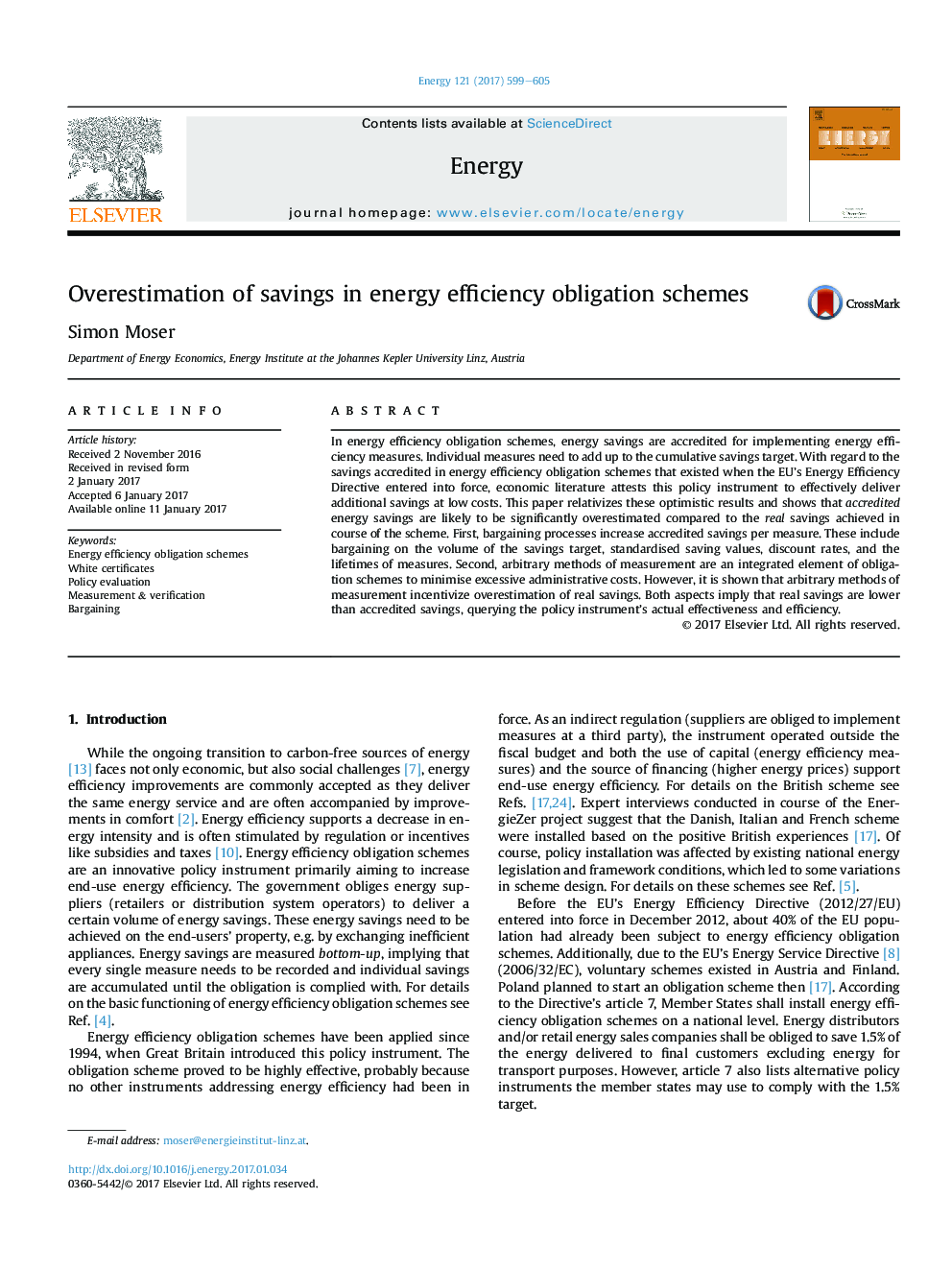| Article ID | Journal | Published Year | Pages | File Type |
|---|---|---|---|---|
| 5476346 | Energy | 2017 | 7 Pages |
Abstract
In energy efficiency obligation schemes, energy savings are accredited for implementing energy efficiency measures. Individual measures need to add up to the cumulative savings target. With regard to the savings accredited in energy efficiency obligation schemes that existed when the EU's Energy Efficiency Directive entered into force, economic literature attests this policy instrument to effectively deliver additional savings at low costs. This paper relativizes these optimistic results and shows that accredited energy savings are likely to be significantly overestimated compared to the real savings achieved in course of the scheme. First, bargaining processes increase accredited savings per measure. These include bargaining on the volume of the savings target, standardised saving values, discount rates, and the lifetimes of measures. Second, arbitrary methods of measurement are an integrated element of obligation schemes to minimise excessive administrative costs. However, it is shown that arbitrary methods of measurement incentivize overestimation of real savings. Both aspects imply that real savings are lower than accredited savings, querying the policy instrument's actual effectiveness and efficiency.
Related Topics
Physical Sciences and Engineering
Energy
Energy (General)
Authors
Simon Moser,
